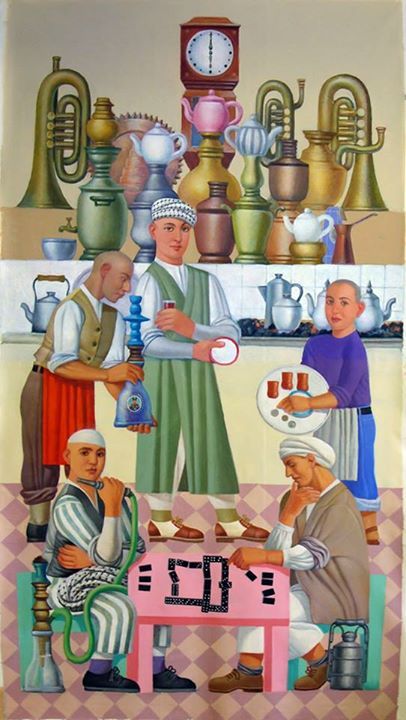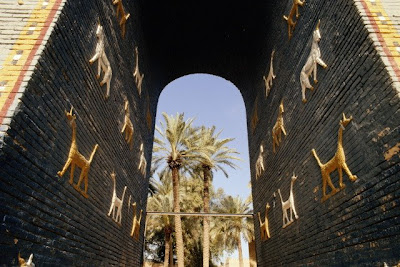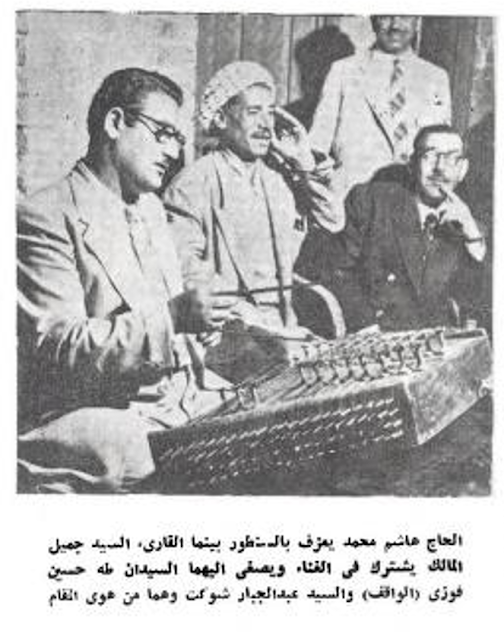The Maqam of Iraq
Amir ElSaffar
Maqam is the urban classical vocal tradition of Iraq. Found primarily in the cities of Baghdad, Mosul, Kirkuk, and Basra, the maqam repertoire draws upon musical styles of the many populations in Iraq, such as the Bedouins, rural Arabs, Kurds, and Turkmen as well as neighboring Persians, Turks, and other populations that have had extensive contact with Iraq throughout history. The use of the word maqam in Iraq is distinct from its use in the rest of the Arab world and Turkey, where the term refers to a musical mode on which compositions and improvisations are based. In Iraq, maqam refers to the composition itself.
Pestehs:
http://www.youtube.com/watch?v=RzwULt833aM
Abudhia by Mohammed Al-Qubanchi in Berlin where Electrola invited him to record
-- Scheherazade Hassan, Tradition et modernisme: le cas de la musique au Proche-Orient, in: Musique et anthropologie. L'Homme: Revue française d'anthropologie. 171:172, 2004, pp. 353-369. Paris.
-- Scheherazade Hassan, Al mosika al 'arabiya al klassikiyya wa makanataha fil-mujtama' al 'arabi al mu'asir, Classical Arabic Music: its position in Contemporary Arab Society, in: Archeology of Literature: Tracing the Old in the New, Alif: Journal of Comparative Poetics. 24, 2004, pp. 27-57. American University of Cairo.
-- Scheherazade Hassan, Musique Arabe: Le Congres du Caire de 1932, in: Yearbook for traditional music 1994
-- The Repertoire of Iraqi Maqām (review) by Scott Marcus
-- The classical Iraqi maqām and its survival, by Neil van der Linden, in: Sherifa Zuhur (ed.), Colors of Enchantment: Theater, Dance, Music, and the Visual Arts of the Middle East, American University in Cairo Press (2001): 321-335
-- Iraq Mesopotamia forever, in Rough Guide to World Music by Neil van der Linden, in: Rough Guide to World Music: Volume 1, 3d edition (2006): 533-538
-- Maqām Singing in Modern Iraq, by Neil van der Linden
Amir El-Saffar website
The Sound Of Resistance: Iraq (with a picture of the young Munir Bashir)








Comments
Post a Comment